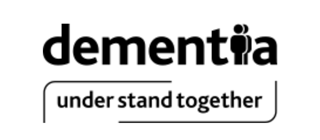.jpg?width=1200&name=Untitled%20design%20(3).jpg)
Nutrition is an essential part of living a healthy lifestyle and contributes to a person’s overall wellbeing. Having a conversation with loved ones on nutrition can be a sensitive topic but whenever it’s approached in a gentle, understanding manner, it can be a great way to begin a conversation around health and wellbeing.
We’ve put together some tips to help make the conversation as productive as possible, for both the Circle of Care and the client.
Choose the right time and place
Before beginning the conversation, assess if the individual is in the best position, both physically and mentally, to have the conversation.
It’s important that the individual feels that they are in a “safe space”. Consider having the conversation in your loved one’s home and if possible, have the conversation one on one as to avoid making the individual feel overwhelmed.
Work together to find a solution
Before making a change to any diet, we would recommend first speaking to a health professional and have vitals recorded such as blood pressure, glucose levels, etc. This is especially important for those with chronic conditions such as diabetes.
Having this information before hand will help identify what nutrients your loved one needs to focus on incorporating into their diet.
Changing nutritional habits can be a challenge but can be made easier if you have someone to support you along the way.
You and your loved one could make the decision to cook more together and try new healthy recipes or cut down on takeaways.
Approaching the conversation as something you can both do together will be more motivational for the individual.
Focus on health, not appearance
Make sure the focus of the conversation is on health and not on appearance or body image. Whenever discussing reasons for eating healthier or changing eating habits, the reasoning should be for improved energy levels, better sleep and overall better wellbeing and health.
Actively listen
It’s important that the individual feels like your concern is not coming from a place of judgement.
Encourage open dialogue and make sure your loved one feels heard and gets the chance to share how they are feeling.
Understand that everyone’s needs may be different
It’s vital to remember that general health and wellbeing will look different for everybody. Particularly for those who have a chronic illness such as Crohn’s disease, they could have different energy levels and may not be able to eat certain foods.
Take this into account whenever approaching a conversation on nutrition with loved ones and don’t be afraid to seek advice from a professional.
How HaloCare can support with nutrition at home
HaloCare understands that no two people are the same thus they create bespoke solutions tailored to the specific needs and abilities of each individual client. HaloCare offers a Nutritional Programme which clients can opt-in to. HaloCare will provide clients with a Smart Scales allowing them to take their weight at home and a nutritional survey will be filled out. HaloCare partners with a registered dietician who will have an initial call with clients to discuss things such as changes in appetite and the client’s current diet and lifestyle. If the dietician decides the client needs more support, they will develop a nutritional plan with the clients long-term goals in mind which clients can access on the easy to use HaloPad.
HaloCare can also create bespoke reminders around nutrition and hydration, these prompts will help ensure your loved one is getting the support they need in order to live a healthy lifestyle.
Find out more about our HaloCare Solution here.


.png?width=352&name=Untitled%20design%20(24).png)







